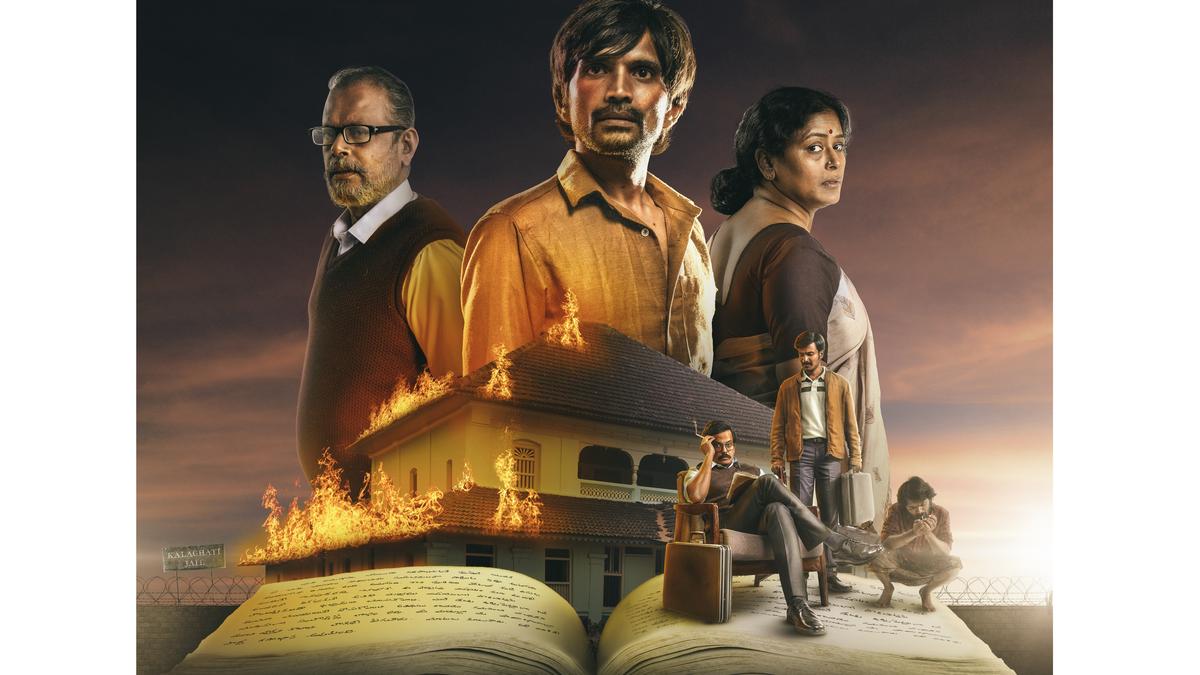
Director Ajay Nag: ‘Aarambham’ is a drama that discusses prison break, mystery and déjà vu
The Hindu
First time director Ajay Nag opens up on the Telugu indie film ‘Aarambham’, an adaptation of the Kannada novel ‘Neenu Ninnolage Khaidi’
The Telugu film Aaramabham (Beginning), releasing in theatres on May 10, marks a new chapter for some of its team members. Directed by debutant Ajay Nag, an alumnus of Hyderabad-based Annapurna College of Film and Media (ACFM), it has onboard several alumni of the same film school, including Dev Gandhi Kundu (director of photography), Aditya Tiwari and Preetham Gayatri (editors) and CS Manicka Prabhu (sound designer) — chalking out their journey into the world of feature filmmaking.
The trailer of the 134-minute film caught attention on social media for its intriguing characters and storyline. An adaptation of the Kannada novel Neenu Ninnolage Khaidi (I am a prisoner like you) by Anush A Shetty, Aarambham has a few surprise elements for the audience, says Ajay Nag, who describes the film as a “drama” that discusses prison break, mystery and déjà vu.
“There is something beautiful at the core of the story that made me want to adapt the novel into a film,” he says, adding, “The audience tends to watch a debut director’s film with no predetermined notions and, I think, will be welcoming if presented with a narrative that surprises them.” The film stars Mohan Bhagath, Ravindra Vijay and Supritha Sathyanarayan.
Aarambham took shape in 2021 when the digital space seemed welcoming of new directors and concepts. With time, the business strategy of streaming platforms shifted towards primarily acquiring films that have had theatrical releases as opposed to direct digital releases. This threw new challenges to the crew of Aarambham but Ajay is confident that the indie film has what it takes to draw people to the theatres.
“When I began working on the film, I was clear that the narrative should not be complicated. The story has a few complexities but our narration is simple. Quite often, film students tend to make their first films complex and indulgent in their eagerness to showcase their skills. I tried to avoid that.”
Having discussed with author Anush, Ajay says the film stays true to the book to a large extent. “We have changed only 5% to 10%. We want the audience to sit back and experience the narrative. I am sure they will appreciate the cinematography. A lot of work has also gone into the sound design. If one were to listen to the story in an audio format with the dialogues and the sounds, it would engage them.” A good part of the music composed by Sinjith Yerramilli, Ajay explains, is used to push the narrative forward.
The team completed filming in 30 days, cautious to work within the budget. Ajay says working with fellow film students helped ensure everyone stayed on the same page. “We had constraints that any indie filmmaking team would have had while working within a limited budget. Five or six of us would stay in a room and schedule who would get ready first to reach the sets, according to our workflow. But we had no disputes and things went on smoothly. We even played cricket.”











